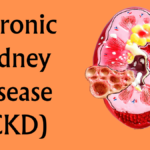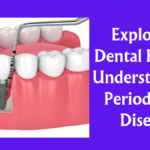Demystifying Mental Health: Navigating Depression and Anxiety Disorders
Mental health disorders have a profound impact on individuals, affecting thoughts, emotions, and daily functioning. Two prevalent players in this intricate realm are Depression and Anxiety Disorders. Let’s embark on a journey to understand these mental health complexities, exploring their characteristics, triggers, and avenues for support and management.

1. Depression: The Shadows of the Mind
– Definition: Depression is a mood disorder characterized by persistent feelings of sadness, hopelessness, and a lack of interest or pleasure in activities.
– Triggers:
– Biological factors, including genetics and brain chemistry.
– Life events, trauma, and chronic stress.
– Symptoms:
– Persistent low mood, fatigue, and changes in sleep and appetite.
– Feelings of worthlessness, difficulty concentrating, and thoughts of self-harm.
– Diagnosis: Clinical assessment based on symptoms, duration, and impact on daily life.
– Management: Psychotherapy, medication, and lifestyle changes to address underlying factors and improve well-being.
2. Anxiety Disorders: The Symphony of Persistent Worry
– Definition: Anxiety disorders encompass a range of conditions marked by excessive worry, fear, and apprehension.
– Types:
– Generalized Anxiety Disorder (GAD), Panic Disorder, Social Anxiety Disorder, and specific phobias.
– Triggers:
– Genetics, brain chemistry, and environmental factors.
– Trauma and chronic stress.
– Symptoms:
– Excessive worry, restlessness, and irritability.
– Physical symptoms like muscle tension, trembling, and sleep disturbances.
– Diagnosis: Clinical evaluation based on symptoms and their impact on daily life.
– Management: Cognitive-behavioral therapy (CBT), medication, and stress-reduction techniques to alleviate symptoms and improve coping strategies.

Navigating Mental Health Challenges:
– Comorbidity: Depression and Anxiety Disorders often coexist, requiring a comprehensive approach to treatment.
– Individualized Care: Tailoring interventions to the individual’s unique experiences and needs enhances the effectiveness of mental health support.
Hope Amid Complexity:
– Reducing Stigma: Increased awareness and open conversations contribute to reducing the stigma surrounding mental health disorders.
– Advancements in Treatment: Ongoing research leads to improved therapeutic approaches and medications for mental health conditions.

Conclusion: Fostering Mental Resilience and Support
Understanding Depression and Anxiety Disorders is essential in fostering mental resilience and compassionate support. With a combination of therapeutic interventions, medication when necessary, and a supportive environment, individuals can navigate the complexities of mental health challenges.
FAQs about Mental Health Disorders
1. Can Depression and Anxiety Disorders be cured?
– While they may not be “cured” in the traditional sense, many individuals can effectively manage symptoms and lead fulfilling lives with appropriate treatment and support.
2. Is medication necessary for managing these disorders?
– Medication is one aspect of treatment, especially in severe cases. Psychotherapy, lifestyle changes, and a supportive environment are equally crucial components.
3. How does stigma affect individuals with mental health disorders?
– Stigma can lead to discrimination and hinder individuals from seeking help. Open conversations, education, and awareness are vital in combating mental health stigma.
4. Can lifestyle changes help manage Depression and Anxiety?
– Yes, adopting a healthy lifestyle, including regular exercise, balanced nutrition, and stress-reduction techniques, can complement therapeutic interventions and medication.
5. Is it possible to prevent mental health disorders?
– While not entirely preventable, certain lifestyle factors, early intervention in response to symptoms, and a supportive social environment can contribute to better mental health outcomes.
- Exploring Dental Health: Understanding Periodontal Disease
- Navigating PCOS in Women and Erectile Dysfunction in Men
- Decoding Vision Challenges: Understanding Age-Related Macular Degeneration (AMD)
- नींद की आदतों के लिए 30 युक्तियाँ, व्यायाम और ध्यान, सकारात्मक दृष्टिकोण के लिए 30 टिप्स (30 Tips for Sleep Habits, Exercise and Meditation, 30 Tips for Positive Attitude)






